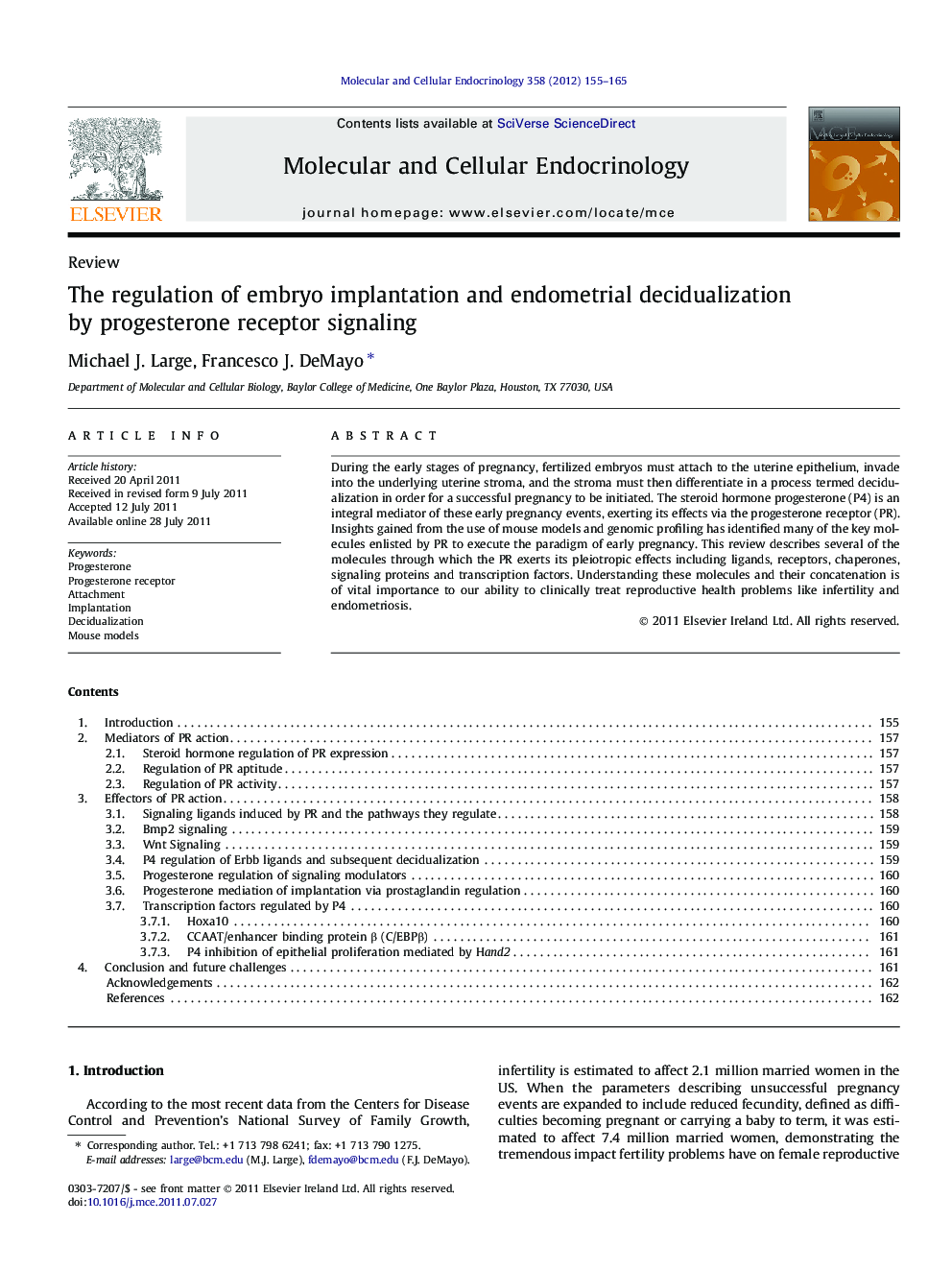| Article ID | Journal | Published Year | Pages | File Type |
|---|---|---|---|---|
| 2196338 | Molecular and Cellular Endocrinology | 2012 | 11 Pages |
During the early stages of pregnancy, fertilized embryos must attach to the uterine epithelium, invade into the underlying uterine stroma, and the stroma must then differentiate in a process termed decidualization in order for a successful pregnancy to be initiated. The steroid hormone progesterone (P4) is an integral mediator of these early pregnancy events, exerting its effects via the progesterone receptor (PR). Insights gained from the use of mouse models and genomic profiling has identified many of the key molecules enlisted by PR to execute the paradigm of early pregnancy. This review describes several of the molecules through which the PR exerts its pleiotropic effects including ligands, receptors, chaperones, signaling proteins and transcription factors. Understanding these molecules and their concatenation is of vital importance to our ability to clinically treat reproductive health problems like infertility and endometriosis.
► In this review we discuss mediators and effectors of progesterone signaling. ► We collate data and insights gained from many mouse models. ► We discuss progesterone regulation of proliferation and differentiation. ► We examine how progesterone regulates implantation and uterine decidualization.
